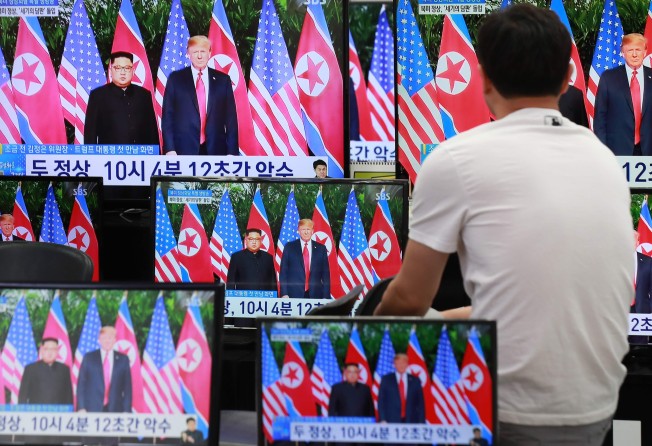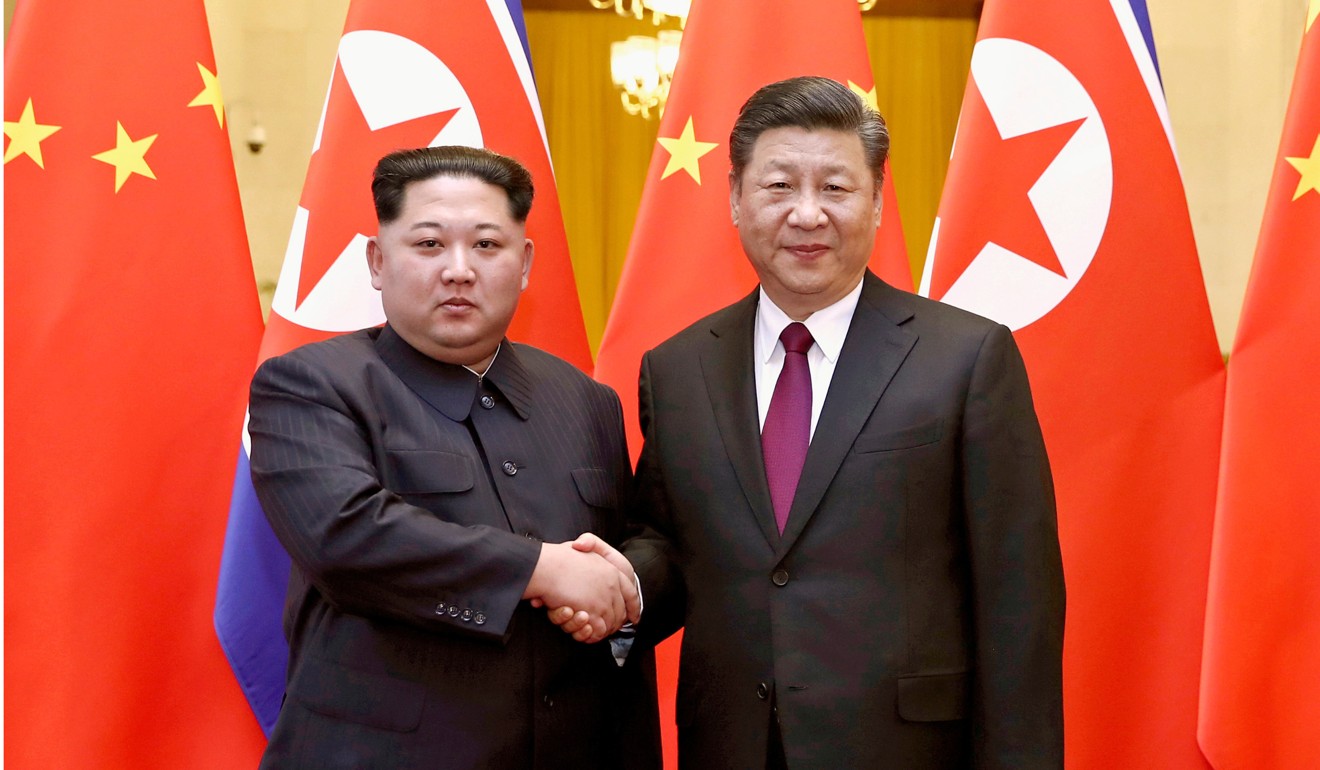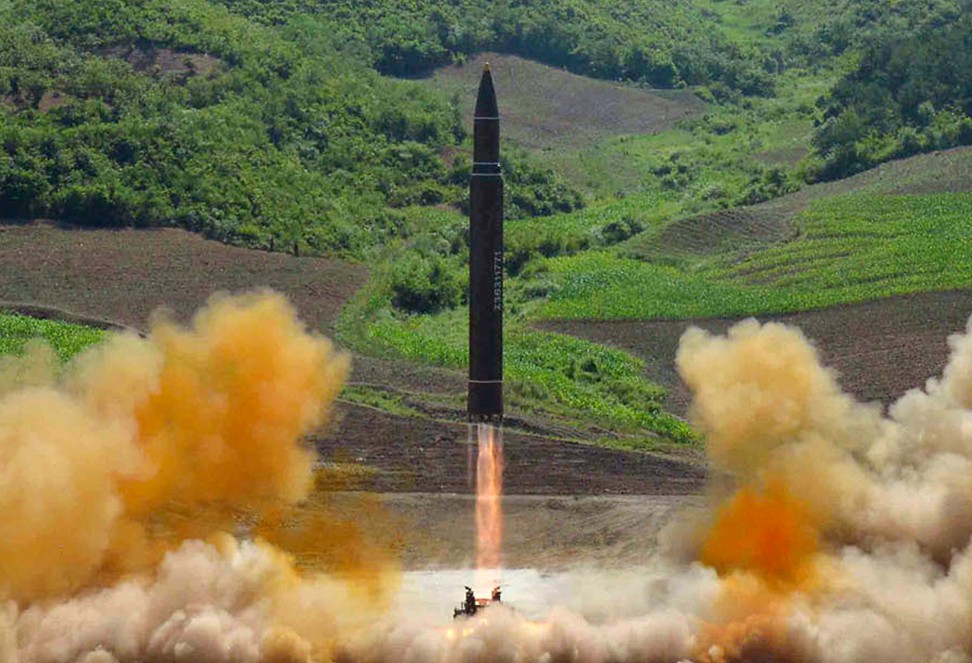Trump-Kim summit was a big deal for the US, North Korea – and China
A momentous occasion for diplomacy and a repeat of what has gone before, Singapore talks begin a process of dialogue mired in regional dynamics, writes Edward Howell

It was a historic moment – the first time an incumbent US president has sat side by side with a North Korean counterpart – but the Singapore summit declaration was unsurprisingly elusive. Pyongyang expressed its previously stated commitment “towards complete denuclearisation of the peninsula”, while Washington affirmed its “security guarantee”, without specifying under what conditions.
The summit epitomised diplomacy as a performance, yet actual details on the issues of denuclearisation and North Korean human rights – the latter issue to which Donald Trump did not respond – remain tentative.
Of course, China’s role within the summit must not be overlooked, particularly given Beijing’s ongoing insistence on a “double freeze” – a pause in Pyongyang’s nuclear development and testing, in return for a suspension in US-South Korea military tests – which Trump subsequently granted. Moreover, Trump’s abrupt announcement of plans to remove US troops from South Korea may be seen as going too far, too soon, with potentially unforeseen regional consequences, yet this seems to play into China’s hands.
The summit has important ramifications for the China-North Korea alliance, in light of which foreign ministry spokesman Geng Shuang raised the possibility of an easing of sanctions. This comes after Beijing’s increasingly tougher stance vis-à-vis North Korea’s nuclear and missile tests over the past year, in support of heightened international sanctions on Pyongyang in late 2017. Reinforcing how “China has consistently held that sanctions are not the goal in themselves”, the foreign ministry stressed how sanctions should be eased so long as North Korea acts “in accordance with UN Security Council resolutions”.
Despite China’s initial reluctance to condemn the actions of North Korea’s aggressive foreign policy in the 21st century, a crucial priority for Beijing is stability on the peninsula. A stable status quo serves the purposes of China, but within the need for such stability comes its disapproval of Pyongyang’s nuclear programme. Yet Beijing’s call for a “freeze for freeze” seems to have been accepted by Trump post-summit, despite UN Ambassador Nikki Haley previously denouncing such arrangements as “insulting”.
The history of international relations illuminates how intra-alliance divergence catalyses fragmentation, as seen by the Sino-Soviet alliance after the Korean war. Beijing is the only ally of Pyongyang, and its largest economic sponsor, comprising more than 90 per cent of North Korea’s total trade volume. The China-North Korea alliance was deemed by Kim Jong-un to be a “precious friendship” following his two trips over the border to meet Xi Jinping, with the two leaders committing to the “coordination of the pressing problems concerning the situation on the Korean peninsula”.

Fulfilling Pyongyang’s desire for an easing of sanctions would simultaneously allow the flourishing of South-North Korean economic cooperation, as put forth in the Panmunjom declaration, and signal to Trump that China is not out of the US-North Korea dialogue.
In fact, China is benefiting from the Singapore summit’s end product. Moreover, should any peace treaty become even close to fruition, China would be required to be party to any agreement, having signed the armistice in 1953. Trump said Kim agreed to “verifiable” denuclearisation of the peninsula, which is central to the US policy of “complete, verifiable and irreversible denuclearisation” that Pyongyang has vehemently opposed. Yet this was not stated in writing, leading to further questions as to the finer details of any agreement.

Despite the pre-summit hype that Trump may concede on sanctions, the president reiterated that “we haven’t given up anything” – US sanctions remain, for now.
The Singapore summit was both a momentous event for diplomacy, and a repetition of what has gone before, with the 1994 US-North Korea Agreed Framework committing to similar vague promises. We all know what happened afterwards.
June 12, 2018 will be rightly remembered as a historic occasion, a big deal – though perhaps not in the literal sense – not just for the egos of the two leaders, but also the commencement of a process of dialogue that may, or may not, bear fruit regarding the menace to the world that is North Korea. Yet we must not forget the difficulties of dealing with the North, the conflicting US and Chinese interests, and the US allies of South Korea and Japan. Singaporean Foreign Minister Vivian Balakrishnan used the Bahasa term jalan jalan for his walk around Gardens by the Bay with Kim on Monday. The complexities of regional dynamics, not least Pyongyang’s reputation for not practising what it preaches, will mean any progress with North Korea will be far from a sprint. Xi does not want to miss out, and Trump’s implicit adherence to Beijing’s ongoing call for a “double freeze” may show that it is not just Washington that holds the key to unlocking the North Korean problem.
Edward Howell is an ESRC Scholar in International Relations at the University of Oxford, specialising in East Asia and the Korean peninsula